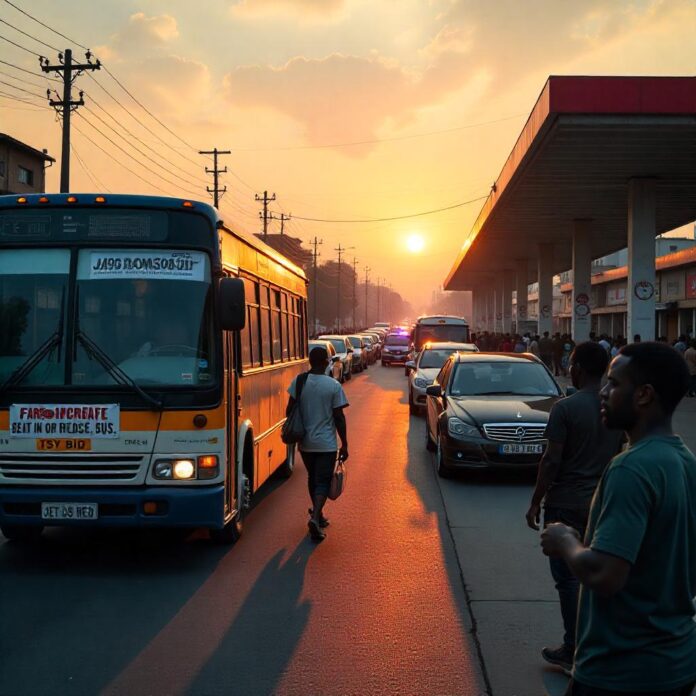Background: Fuel Scarcity and Price Hikes
Government Policy Changes:
In May 2023, President Bola Tinubu announced the removal of the fuel subsidy, leading to an immediate surge in petrol prices. Before the subsidy removal, petrol prices were approximately N198 per litre. Post-removal, prices have escalated, with reports indicating prices as high as N1,300 per litre in some areas.
Fuel Supply Challenges:
The Nigerian National Petroleum Corporation (NNPC) has faced financial strains, with debts exceeding $6 billion, impacting its ability to import sufficient fuel. This has led to widespread shortages and erratic fuel distribution across the country.
Surge in Transport Fares
Urban Areas:
In cities like Lagos and Abuja, transport fares have more than doubled. For instance, a trip from Wuse Zone 2 to Wuse Market in Abuja, which previously cost N300, now costs N600.
Interstate Travel:
Long-distance travel has also seen significant fare hikes. A journey from Lagos to Ibadan, which used to cost N1,500, now costs between N2,500 and N3,000, representing an increase of up to 100%.
Rural Areas:
In smaller towns and rural areas, the impact is even more pronounced. For example, in Ekiti State, fares have increased by up to 100%, with trips from Ido Ekiti to Ado Ekiti now costing N700, up from N500.
Public Impact of Fare Increases
Economic Strain on Commuters:
Daily commuters, especially those in low-income brackets, are finding it increasingly difficult to afford transportation. The increased fares are consuming a larger portion of their income, leading to financial strain.
Reduced Disposable Income:
With a significant portion of income directed towards transportation, individuals have less money to spend on other essentials, affecting their overall quality of life.
Impact on Employment:
The high cost of transportation is affecting workers’ ability to commute to their places of employment. Some workers have reported arriving late or missing work due to unaffordable transport options.
Social Unrest:
The public’s frustration with the rising transport costs has led to protests and calls for government intervention to address the issue.
Government Response and Initiatives
Compressed Natural Gas (CNG) Initiative:
The government has launched the Presidential CNG Initiative (Pi-CNG) to encourage the conversion of petrol-powered vehicles to CNG. The aim is to reduce fuel costs for motorists and decrease emissions. However, the adoption has been slow due to limited infrastructure and safety concerns.
Policy Adjustments:
The government has made efforts to stabilize fuel prices through various policy measures, including negotiations with fuel marketers and adjustments to import policies.
Public Awareness Campaigns:
Initiatives to educate the public about alternative fuel options and energy-saving practices have been introduced to mitigate the impact of rising fuel costs.
Long-Term Implications
Economic Consequences:
The increased cost of transportation is contributing to overall inflation, affecting the cost of goods and services. Businesses, especially small and medium enterprises, are facing higher operational costs, which may lead to reduced profitability and potential layoffs.
Social Impact:
The financial strain on individuals may lead to increased poverty levels and social unrest, as people struggle to meet basic needs. The widening gap between the rich and poor could exacerbate existing social inequalities.
Policy Reforms:
The situation may prompt the government to reconsider its policies on fuel subsidies and explore alternative solutions to address the challenges in the transport sector. There may be a push for investment in public transportation infrastructure and the promotion of alternative energy sources.
Summary
The fuel scarcity and subsequent transport fare hikes have had a profound impact on Nigerian motorists and commuters, exacerbating economic and social challenges. While the government has introduced initiatives to address these challenges, the effectiveness of these measures remains to be seen. It is imperative for the government to engage with stakeholders and implement comprehensive policies to stabilize the transport sector and alleviate the burden on the public.


